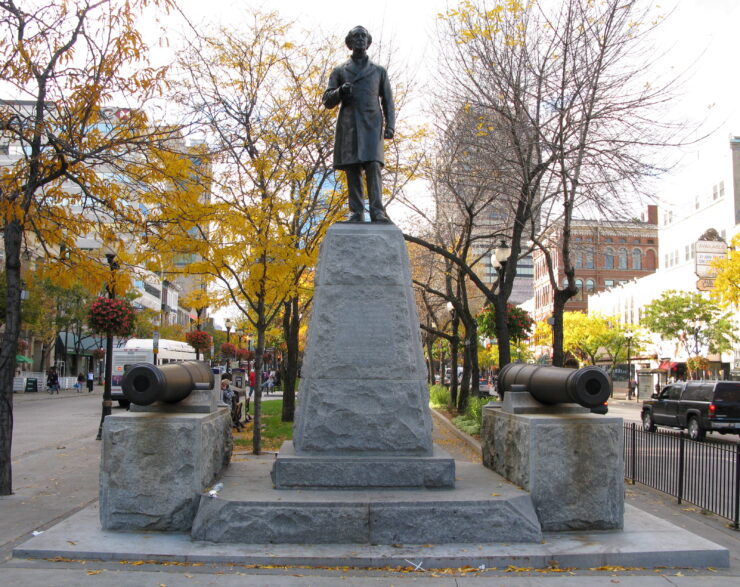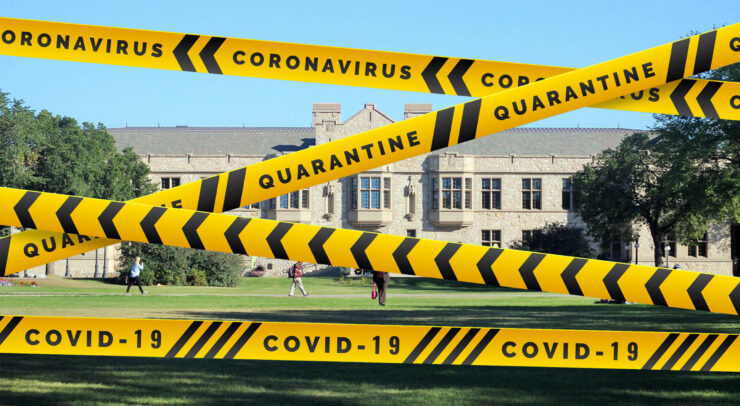U of O party turns dirty
OTTAWA—STANLEY PARK WAS left in bad shape on Sunday night as City of Ottawa maintenance cleared away 17 bags of garbage. According to a local resident, bottles, cans, food, and bags were left at the park after a 101 Week party.
U of O wristbands and torn frosh guide contracts were found amongst the trash. Although the garbage left behind was significant, the police didn’t say whether they received complaints from residents. Staff Sgt. Dan Beauchamp told 24 Hours that such student activity is normal for this time of year.
“It’s frosh weekend, right? We’re chasing Carleton and [University of Ottawa] students out of every park, out of every party, out of the Market,” said Beauchamp to 24 Hours. “We’ve been doing it since Friday.”
—Jane Lytvynenko
Nearly 8,000 campus workers strike as college students return to school
LONDON (CUP)—ONTARIO COLLEGE SUPPORT staff workers and their employers have failed to reach an agreement on a new contract, sending about 8,000 members of the Ontario Public Service Employees Union (OPSEU) on strike at 24 colleges across Ontario. The bargaining process broke down on the Sept. 1 deadline.
“The issue to us this round is not about the money—it’s about the inability of their team to actually bargain with us,” said Marg Rae, president of the OPSEU Local 109 at Fanshawe College.
According to Rae, labour dispute issues have included concerns over the arbitration process, compressed and flexible workweeks, tuition paid for dependants of support staff, and benefit coverage for retirees. Though these issues were all discussed at the bargaining table, both sides were unable to agree on any settlements. As of Sept. 15, there were no plans for further bargaining.
—Kirsten Rosenkrant, Interrobang
Ontario’s Liberal party pledges grant for university students
TORONTO (CUP)—DALTON MCGUINTY, ONTARIO’S Liberal Party leader has pledged to put in place a program that would give grants to the majority of Ontario university students if his government is elected
McGuinty gave details of the grant, saying his government would be providing $1,600 to any student whose family income is less than $160,000. For college students, $760 would be allocated per student under this new program. McGuinty promised these payments would be effective as of Jan. 1 if his party wins the upcoming election.
“The way that it is applied as a separate grant opens up the access for students who don’t want to take on government debt, or who might not apply for Ontario Student Assistance Program,” said Sean Madden, president of the Ontario Undergraduate Student Alliance. “That’s an important aspect of the program.”
Tuition fees in Ontario are the highest in the country, according to a recent study by the Canadian Centre for Policy Alternatives. The grant would increase access to post-secondary education, but there is no guarantee that the amount would be increased with university tuition year after year.
—Hani Kaddah
Universities look for copyright licensing alternatives
SASKATOON (CUP)—IN THE WAKE of a proposed fee increase, universities across Canada have opted to leave contracts with once-popular copyright licenser Access Copyright.
Access Copyright is an organization that offers post-secondary institutions and other groups advance permission to copy a variety of print publications. Access Copyright collects royalties and subsequently pays the authors, creators, and publishers of the works used.
“Campuses are now spending tens of millions of dollars every year on alternative licensing to cover hundreds or thousands of journals and millions of articles,” said University of Ottawa law professor and Toronto Star columnist Michael Geist. “When Access Copyright goes to the Copyright Board and says costs should go up rather than down, the responsible thing for universities to do is to question that and Access Copyright’s role in copyright licensing.”
“Students will likely find that their instructors are providing them with a lot less paper. [Under fair dealing,] you’re permitted to make copies for your own private study, but you’re not allowed to make copies for teaching purposes,” said the organization’s executive director, Maureen Cavan.
—Tannara Yelland, CUP Prairies and Northern Bureau Chief





